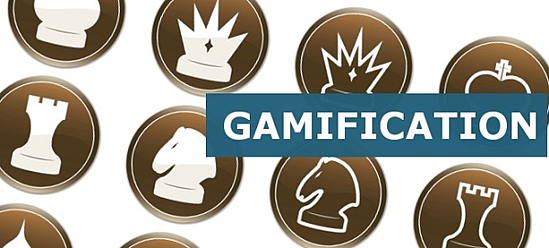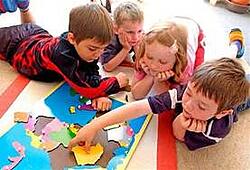 When asking young children about their favorite activities in school, they always come out and say science, or math, possibly even spelling, right? Not a chance. Most young children are going to point to recess as their favorite activity throughout the day. Others might say story time, while others might enjoy painting and other artistic activities. But if these children just want to come to school for fun and playtime, how in the world are they ever going to learn correct spelling, mathematics, or other educational essentials? The question answers itself.
When asking young children about their favorite activities in school, they always come out and say science, or math, possibly even spelling, right? Not a chance. Most young children are going to point to recess as their favorite activity throughout the day. Others might say story time, while others might enjoy painting and other artistic activities. But if these children just want to come to school for fun and playtime, how in the world are they ever going to learn correct spelling, mathematics, or other educational essentials? The question answers itself.
Science and math, spelling, and geography all need to be transformed into something fun and exciting. It needs to be something a child looks forward to, has fun participating in, and feels like they are actually playing a game, not droning over mindless information they'd rather take a nap over. The more fun a child has, the better of a child is when it comes to learning and retaining the information.
However, many teachers, parents, or other individuals point to two reasons why gamification, or the integration of gaming into traditionally non-gaming activities, doesn't work. These are rather close-minded assumptions of gamification, due to the teachers or parents not understanding it. However, they still like to make excuses.
Learning Isn't Suppose to be Fun
 Many old school teachers and parents point to the notion that school is not supposed to be fun. It is for sitting, absorbing information, repetition, and then going home so they can study what they were taught throughout the course of the day.
Many old school teachers and parents point to the notion that school is not supposed to be fun. It is for sitting, absorbing information, repetition, and then going home so they can study what they were taught throughout the course of the day.
This very old ideology of learning is rather outdated though. While there are some children who are going to gravitate naturally towards math or science, due to their own mental makeup, it is not something that most children do.
Having fun doesn't mean something is bad. It means the individual is enjoying it. Shouldn't a child enjoy school? Gamification helps with this and allows children to have fun with it. Individuals have a natural instinct to compete with one another. It is how humans have survived improved and adapted over tens of thousands of years to become the most dominant species on the planet because, for the better part of human history, they were not.
Taking competition, albeit fun competition, out of school, forces out human instinct and reduces the children to mindless individuals who must sit still and fight every natural instinct they have and then going home so they can study what they were taught throughout the course of the day. This very old ideology of learning is rather outdated though. While there are some children who are going to gravitate naturally towards math or science, due to their own mental makeup, it is not something that most children do.
Gamification is a Fad
Some might point to gamification as a fad or just the 'in' form of teaching currently. Like many fads, it comes and goes, eventually going back to how it originally started off. However, it is more of an evolutionary process of teaching than an actual fad.
In order to improve the form of teaching and reach students, teachers themselves and the way they present information much change over time, just as students change over time. Gamification provides this method and it bridges the gap for children between fun and their learning ability. Everything comes and goes in phases, but it is important to know what phases are going to help progress a subject to the next level.

Children are going to discover they enjoy learning when they have fun, which is going to make it that much more progressive. This simply means they are going to latch on to the fun form of learning and never again look back towards a different particular style. Children are the future of the country, which is why it is so important for children to always have access to the best forms of education. Gamification provides the latest and best form of learning.
The best way for children to learn and to grow in their education is to make sure they look forward to learning. Gamification ensures children look forward to school and their learning because of the fun they have. After all, children are more likely to want to learn when they actually enjoy it and with gamification, this is possible.
There is no reason why children should ever have to give up fun and excitement in exchange for learning. The two can go hand in hand, and that is exactly why gamification is so important.

-1.png)
